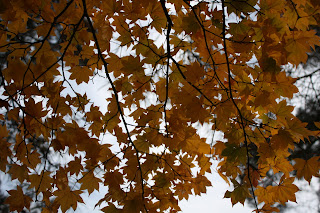Meiji Shrine, Tokyo
I started in Tokyo in June, bright-eyed, bushy-tailed, ready to take on the world. I soon grew to love konbini soba, chicken nuggets with barbecue sauce, and tuna-mayo onigiri. Two months soon passed and I was pretty jaded to Japan. Not in a negative sense, but in a "this is daily life, dum-tee-dum" sense.
Morioka, Iwate-ken, Japan
Now we get to Morioka. Five months which were rather difficult as I had been here longer than the others, but I did get a few chances to slip away, particularly for the fall break, which was much needed to see a friend from back home.
Japanese Box Crab. Osaka Kaiyukan, Osaka, Japan
And maybe meet a few aquatic friends in Osaka as well.
As the months dragged on, coping became harder. My host family is made of angels but homesickness is no saint.
Hiraizumi, Iwate-ken, Japan
I guess in my current frame of mind with my return to America coming fast it's hard to say what I have learned and gained. It's easy to say "my Japanese is better" but the most important lessons I have learned abroad have yet to make themselves known. Only time will tell.



